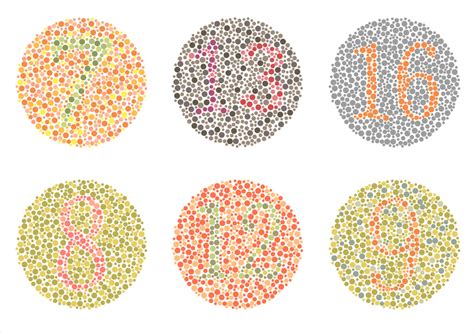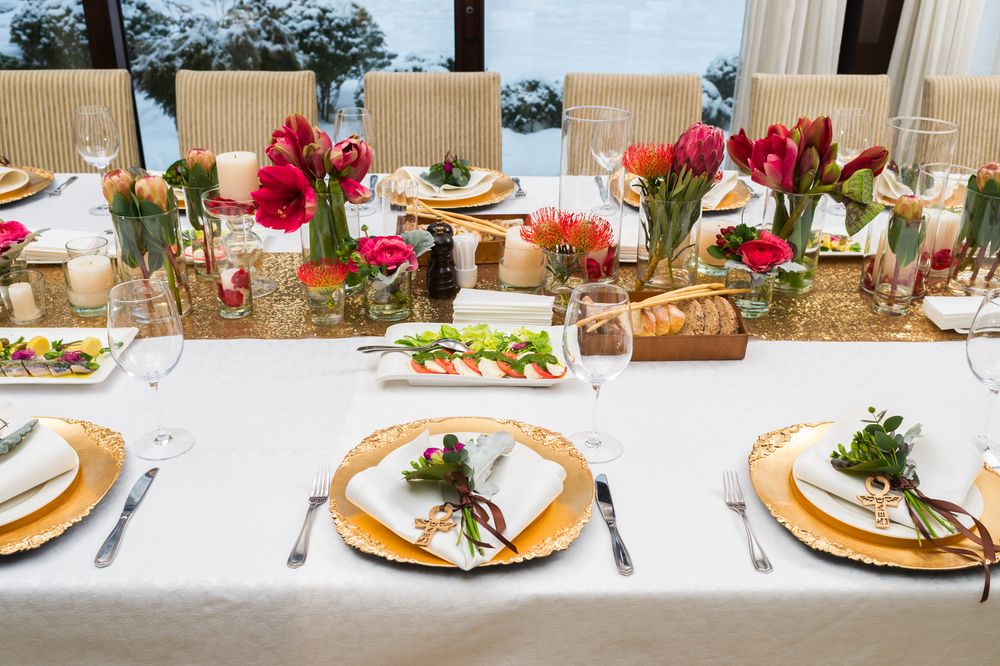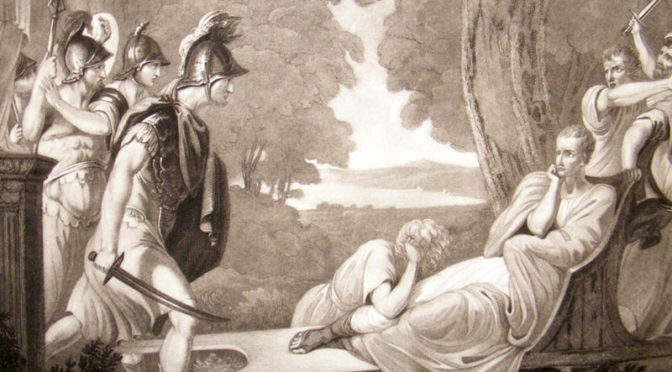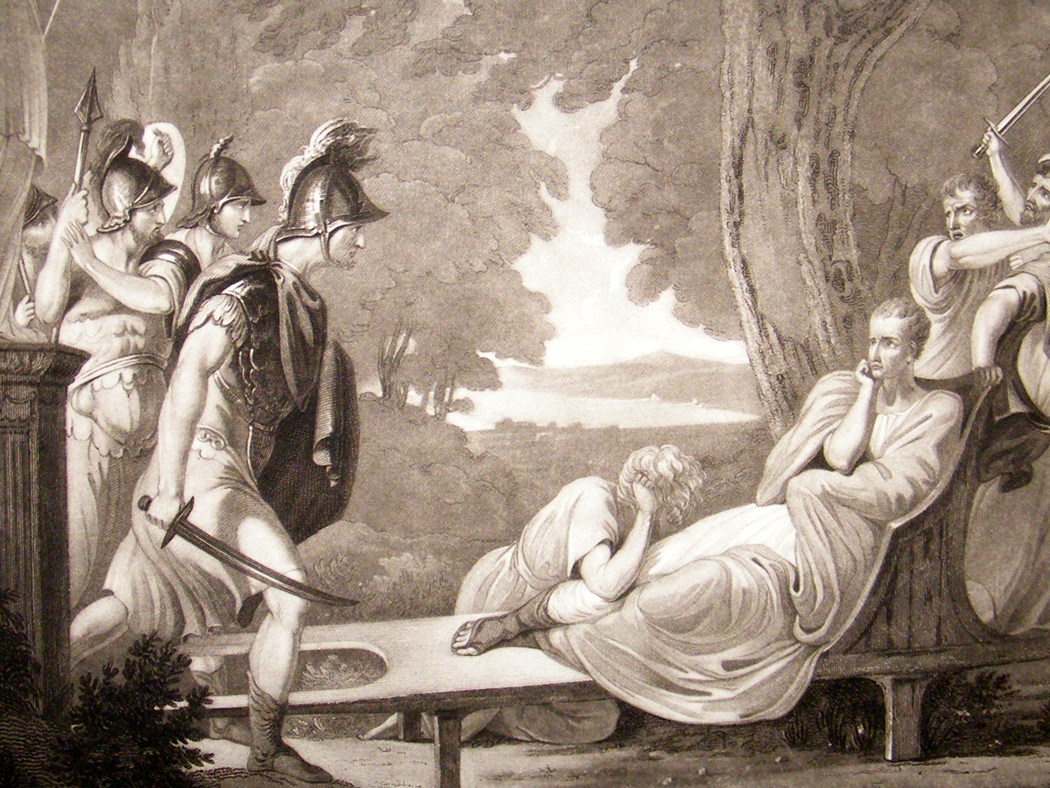Our desire to verbal process the world, and our almost frictionless ability to process the world verbally in front of crowds of people on social media is a funny modern novelty. My wise old dad, he’s 60 soon, once said to me that for the vast majority of his life in ministry he’d have had no idea how his friends and ministry colleagues voted; politics just weren’t a thing that mixed with the pulpit.
How quaint, I thought.
And then I decided I’d dearly love to not know how a preacher votes. In a great twist of ironic fate, an article might come out elsewhere in a couple of days where I explain not ‘who I vote for’ but ‘how I vote’ (I’ve covered this in depth here previously). You may think you can guess how I vote from what I write, and what sort of moral matrix or grid I appear to filter things through, and that would, I think, represent a failure on my part. My prior training as a journalist, my career in a not-for-profit ‘apolitical’ lobby group, and my current vocation all require, I believe, a certain sort of objective detachment from the cut and thrust of party politics; a detachment that means it would be inappropriate for me to hold my job and be a member of a political party, or obviously partisan.
I’m not saying I’d love preachers and Christians to not be engaged in political issues — I’m with sociologist/theologian James Davison Hunter on the criticism of a modern attitude that leaves complex social and political issues to politicians and lawmaking; I’d love the church to be modelling an alternative vision for life together as the kingdom of God in this world, and for us to speak winsomely on political issues in the public square as ambassadors for Christ, trying hard to persuade our neighbours of the truth, goodness, and beauty of life with Jesus as king. I’d love us to be participating in, or creating, institutions that seek ‘political change’ or to impact the public, or commons, in positive ways as a way of loving our neighbours and testifying to the lordship of Jesus. I’d love us to speak widely, beyond just the few issues that seem to be identity markers for ‘left’ or ‘right’ or ‘centrist’ politics to model what ‘Christ centred’ politics looks like; where there is no inch of life in this world that Jesus does not declare ‘mine!’
But I’m concerned, with James Davison Hunter, about ‘the culture wars’ (he coined the phrase back in 1991 in his book Culture Wars: The Struggle To Define America). He described these wars as “political and social hostility rooted in different systems of moral understanding” and emerging from opposing “assumptions about how to order or lives – our own lives and our lives together in this society.” It’s fine to morally disagree with people, across political, philosophical, and religious lines — the art is figuring out how to live in disagreement, and listen to the other, without adopting a winner takes all approach to wiping out those who disagree with you. Our desire to wipe out the other, the ‘culture war’ is a product of a polarisation that treats ‘other’ as enemy, and then justifies their extermination, or forced conversion via the threat of excommunication or exclusion from ‘society’.
Here’s what Hunter wrote in 1991:
But there is still another factor that contributes to the polarisation of public discourse and the eclipse of the middle. The polarisation of contemporary public discourse is in fact intensified by and institutionalised through the very media by which that discussion takes place. It is through these media that public discourse acquires a life of its own; not only do the categories of public rhetoric become detached from the intentions of the speaker, they also overpower the subtleties of perspective and opinion of the vast majority of citizens who position themselves “somewhere in the middle” of these debates…
“Middling positions and the nuances of moral commitment, then, get played into the grid of opposing rhetorical extremes.”
The problem with this last bit is that if this grid exists, and people place themselves in a position to listen to voices that reinforce their particular cultural convictions (including a position on ‘the other’), then nothing that is said, whether extreme or ‘middling’ is ever heard properly, it simply reinforces the polarisation. This is damaging for society at large, but it is even more deleterious to the project of unity in Christ within a church community. Is it possible for a church in this cultural climate to be a place where individuals from the left and right come together in fellowship, in a way that allows both left and right — all our politics — to be transformed by our union with Christ, through the Spirit, shaped by the ethics of Jesus’ kingdom as revealed at the cross?
What makes this vision for church community even trickier is when Christians leaders, or individuals, adopt combative positions in the culture war in ways that alienate the other, or worse turn the ‘other’ into an ideological enemy to be defeated rather than embraced.
What also makes this difficult is where the ‘culture wars’, politics, and the media have gone since 1991. Hunter describes the general tone of public discourse, in 1991, pre-social media as: “…elitist, sensational, ambivalent, suspicious of new voices, and intensified and further polarised by the very media by which such discourse takes place.”
This was before social media, which exists to serve up users more of what they want, which tends to be ‘more of what they have expressed an interest in’ that the algorithm can measure, which tends to be ‘more of what they already think but packaged in more sensationalist and titillating ways that retain attention by amplifying feelings (especially feelings of outrage)’… The mass media was bad for polarisation — targeted, algorithmically driven, social media that fragments right down to the individual level is worse. I wrote a series about social media, outrage culture, and virtue back here. Especially when the sort of positions that Hunter suggests represent the majority, de-escalate polarisation, and cultivate virtue and civility, the “middling positions’ that involve nuance take time and attention and space to think and process were hard enough in traditional media contexts, but are anathema to our infinite scrolling through social media newsfeeds.
Mark Zuckerberg once described the ‘self interest’ at the heart of Facebook’s newsfeed by saying:
“…a squirrel dying in your front yard may be more relevant to your interests right now than people dying in Africa.”
This is also why you’re likely to see more online about New Zealand than about religious killings in Nigeria; this is the algorithmically perfected editorial policy of most major commercial news services — such services exist not for civic good, but for profit. Our media platforms serve up stories that appeal to their audiences. It’s now on us, the public, to cultivate the sort of consumption of media, and lives, that de-escalate the culture wars — especially those of us in churches where we’re first focusing on relationships in church.
In a 2018 interview about where these wars have gone since Hunter coined the term, he said the cultural conflicts in this war have amplified and intensified, and this is because ‘culture’ is actually profoundly important — it sits upstream from politics and law because it shapes our moral imagination.
“That’s because culture is not a marginal concern, as many educated people profess to believe—even as they often espouse their own dogmatic cultural positions. Rather, culture is “about systems of meaning that help make sense of the world,” Mr. Hunter says, “why things are good, true and beautiful, or why things are not. Why things are right and wrong.” Culture “provides the moral foundation of a political order.”
It’s not just Hunter who predicted the culture wars in ways that seem prophetic now, especially with the addition of social media.
Back in 2006, New York Times columnist David Brooks wrote a prescient piece about the polarised nature of two-party politics, and how the two parties rely on such polarisation fuelled from within, and by a war footing of sorts, to continue to exist. This leads to the destruction of public, political, conversation — and especially shapes how we see ‘the other’.
“The flamers in the established parties tell themselves that their enemies are so vicious they have to be vicious too. They rationalise their behaviour by insisting that circumstances have forced them to shelve their integrity for the good of the country. They imagine that once they have achieved victory through pulverising rhetoric they will return to the moderate and nuanced sensibilities they think they still possess.”
Sadly, he predicted what might happen if his invented ‘moderate coalition,’ the ‘McCain—Lieberman Party’ (Republican senator John McCain and Democrat senator Joe Lieberman), did not get ‘absorbed’ into the policy platform of one of the major parties. This was pre-Obama, and certainly pre-Trump.
“The McCain-Lieberman Party … sees two parties that depend on the culture war for internal cohesion and that make abortion a litmus test. It sees two traditions immobilized to trench warfare.
The McCain-Lieberman Party is emerging because the war with Islamic extremism, which opened new fissures and exacerbated old ones, will dominate the next five years as much as it has dominated the last five. It is emerging because of deep trends that are polarising our politics. It is emerging because social conservatives continue to pull the GOP rightward (look at how Representative Joe Schwarz, a moderate Republican, was defeated by a conservative rival in Michigan). It is emerging because highly educated secular liberals are pulling the Democrats upscale and to the left. (Lamont’s voters are rich, and 65 percent call themselves liberals, compared with 30 percent of Democrats nationwide.)
The history of third parties is that they get absorbed into one of the existing two, and that will probably happen here…
But amid the hurly-burly of the next few years… the old parties could become even more inflamed. Both could reject McCain-Liebermanism.
At that point things really get interesting.”
And, so, Brooks predicted Trump. The collapse of the political middle into a zero-sum culture war that sees the ‘other’ side as an enemy to be polarised, whoever or whatever the other side stands for. A politics filled with political actors who’ve lost touch with the ‘moderate and nuanced sensibilities’ that produce stability and a ‘commons’ of sorts between right and left, in exchange for an entrenched flame war.
And here we are 13 years on from Brook’s piece. And the flames are burning. And violent political language and battlelines being drawn begets violence in the real world. I highlight that link only because it was particularly pugilistic, and it appeared in my Facebook feed for no reason that I could fathom. You might say ‘that’s just hyperbole’ — but it’s hyperbole that fits a trend that has been recognised and described for some time, and while it’s the nature of the business of Aussie politics, with our two party system, for politics to involve a certain sort of adversarial ‘theatre’ and an ‘us v them’ mentality, in order to divide and conquer… that’s not the business of the Aussie church.
Political idealists, especially partisan ones, whether left, or right, are now turning on the centrists — those who try not to play the culture war, or who seek moderation in all things — idealists on the extremes are increasingly suggesting that to adopt a ‘neutral’ or ‘apolitical’ stance on an issue — to not speak or act — is to adopt the status quo. This is not just a new type of ‘culture war’ against the middle, which was previously just eclipsed (Hunter) or encompassed (Brooks). It’s a deliberate move to exclude the middle in the name of the greater ideological conflict between the poles. It’s an insistence that to be moral one must pick a side, and that to be a moderate is to attempt to sit on the fence on all things. It is to insist that the ‘other’ is evil or complicit, and to stay on the fence makes one complicit too. This classically works better from the left, who tend towards systemic views of evil, and to annoy the right, who tend to see evil as an individual, personal, choice — where if you aren’t making it, you aren’t evil… but that’s changing the more the conflict ramps up, the more there’s an apparently clear ‘us’ and ‘them’… Quite apart from this turn towards resentment of the moderate position being a damaging move when it comes to individual conscience (you ‘must’ choose a system that tells you how to think), and our creatureliness (we must act on every injustice to be moral, if to not act is to participate in evil), and our limited ability to know and form thoughtful positions on many, often competing issues (ideology is a nice shortcut to deal with this), these idealists would say (and do say) that to listen to the concerns of the ‘other side’ is to legitimise those concerns (not simply to see the ‘other’ as a human worthy of love, attention, and understanding). This move is a move to dehumanise or dismiss every other who does not share your convictions. Christian idealists of any variety — those who ‘baptise’ a particular political stance as representative of the kingdom — would have us eradicate political difference as part of the kingdom of God; this makes Christian ‘how to vote’ cards, from the left, or the right, very simple to produce because voting as a Christian, and participating in the polis as a Christian, is quite simply a matter of adopting the ideological platform, and fighting the opponent. I think this approach is wrong for a bunch of reasons alluded to above — but I think it also reinforces the culture war by amping up polarisation — the way to minimise the rapid run to the poles is to resist those forces that fling us there. It’s to engage in careful listening; to pursue understanding, and to arrive at conviction making sure you’ve charitably understood the position of the other. This is where the best sort of disagreement is possible, the sort that actually has the possibility to persuade the other, not just to re-convict them of their prior convictions (in other words, it’s not just a more virtuous, less vicious, strategy, it’s also more effective). Moral psychologist Jonathan Haidt, in The Righteous Mind, talks about the polarisation of left and right and how each group tends to assess morality using different categories and frameworks that mean we often use the same words to talk past one another. He talks about how we humans are less purely rational and in control of our decision making than we might think, and how ‘wars’ and ‘tribalism’ feed our decision making instincts, which are profoundly ’emotional’ — he talks about our emotions as a rampaging elephant in our decision making and our reason as the rider trying to tug on some reigns.
He says, in The Righteous Mind, “the persuader’s goal should be to convey respect, warmth, and an openness to dialogue before stating one’s own case,” he says our inability to understand another person’s point of view, to see the world their way, is at the heart of the polarising force of our political ‘culture war’ — suggesting we should seek this as a baseline for political and moral conversations, or arguments.
“It’s such an obvious point, yet few of us apply it in moral and political arguments because our righteous minds so readily shift into combat mode. The rider and the elephant work together smoothly to fend off attacks and lob rhetorical grenades of our own. The performance may impress our friends and show allies that we are committed members of the team, but no matter how good our logic, it’s not going to change the minds of our opponents if they are in combat mode too.”
If you really want to change someone’s mind on a moral or political matter, you’ll need to see things from that person’s angle as well as your own. And if you do truly see it the other person’s way—deeply and intuitively—you might even find your own mind opening in response. Empathy is an antidote to righteousness, although it’s very difficult to empathise across a moral divide.
It is very difficult. Imagine being called to not just ’empathy’ but to ‘having the same mind’ or ‘the one mind’ or the ‘mind of Christ’ with people where there’s a moral or political divide (ala Philippians 2:1-11). Imagine having to navigate that! Haidt even envisages the goodness that such a community might bring to this fracturing world, he’s not specifically describing the church, although he kinda, sorta, is.
In the same way, each individual reasoner is really good at one thing: finding evidence to support the position he or she already holds, usually for intuitive reasons. We should not expect individuals to produce good, open-minded, truth-seeking reasoning, particularly when self-interest or reputational concerns are in play. But if you put individuals together in the right way, such that some individuals can use their reasoning powers to disconfirm the claims of others, and all individuals feel some common bond or shared fate that allows them to interact civilly, you can create a group that ends up producing good reasoning as an emergent property of the social system. This is why it’s so important to have intellectual and ideological diversity within any group or institution whose goal is to find truth (such as an intelligence agency or a community of scientists) or to produce good public policy (such as a legislature or advisory board).
I think it’s very possible to be partisan and a Christian. I’ve often suggested one of the best things individual Christians can do to embrace James Davison Hunter’s motif of ‘faithful presence’ is join a, any, political party and then be part of policy discussions. I just don’t think the church — be it a denomination, institution, or local gathering — should be marked by a partisan approach to politics. And I fear, because I know how too many leaders of churches vote (both on the left, and on the right), that we are buying in to culture wars in a way that buys into the devil’s hands. The best form of Christian community is one where partisan Christians who are seeking to maintain a faithful presence in our political and cultural institutions shaped by convictions about Jesus and his kingdom, and personal convictions about how that plays out within and against these institutions, whether on the right or the left, can come together in fellowship in a way that models the way forward outside the community of believers — our ability to unite, to listen, to co-operate, and to disagree with one another with love and charity might be a beacon and a blessing to our neighbours. And yet, there seems to be no will to extricate ourselves from the culture wars — especially when it comes to the way Christian leaders (myself included) use social media. This is the sort of time when people say ‘you’re talking in generalities, prove it’ — and at this point I’d suggest that our denomination’s recent statement on abortion, while it adopts a position I agree with, had the unfortunate effect of equating a vote for or presence within the Labor Party as being a participant in evil, and I’d point to this cultural warrior, a Presbyterian minister, who wages the culture war in a media channel that is famously partisan, and I’d ask — could anyone outside the hard right comfortably attend a church where such views are linked inextricably to the pulpit?
Is this what we want?
I am certain that I’m perceived by many to be partisan when it comes to politics; I’ve been described by a dear Christian brother as ‘the left’s form of the ACL’. I felt misrepresented (if the interview I mentioned up top gets published you might see why), and like I was being interpreted through a particular grid, at that time, but I certainly do embrace issues and positions championed by the left (I’d like to think I also do that with the right). I’m distressed that taking a position, a political one, on an issue — even a moderate one — is seen as divisive and a reason for breaking fellowship. And I’ve experienced this as people exited our church community over my (and our) stance on the postal survey. Other friends who don’t buy in to the culture war have experienced a similar ‘exodus’ — these exoduses always end up creating little tribes within our church networks; little homogenous political communities, or demographics, that don’t have the opportunity to be the alternative polis modelling life across divides that we so desperately need. So I apologise and repent for those times when my rhetoric has fuelled partisan division, rather than calling us to a better conversation (note, I’m not apologising for convictions on issues, or for saying things people disagree with).
I fear that part of the alternative community that the church offers to the world is a community where people come together from different positions and backgrounds, with different convictions about political problems and solutions, and find unity in a king.
I fear that church is meant to be a community where people can belong and find their commitment to certain civic goods re-shaped, re-ordered, and transformed by the king — in ways that simultaneously affirm and invert good and not so good things about ‘left’ or ‘right’ or ‘centrist’ solutions.
I fear that the church is meant to be a place of re-imagining and re-imaging life in ways that might re-animate our political right, political centre, and political left, and yet we are a place that too often has our imagination co-opted by a political ideology from the world, rather than by the life, death, resurrection and rule of Jesus.
I fear that our rhetoric and culture war fighting as ministers, preachers, or vocally partisan Christian punters fuels the division of our society into tribes even as we call people to follow the king of the universe.
I fear that whether a church leader is known for being partisan in any political direction, that the climate that creates is a drawing in of people who agree with that stance, at the exclusion of those who disagree.
And yet, I am also hopeful.
I hope that church communities can emerge that are the sort of communities Haidt describes — committed to truth, and to listening to the other.
I hope that our churches might be communities that are not ‘apolitical’ or defined by a particular partisan outlook — but rather be models of places where people can come together finding unity in Christ and his kingdom, to be sent as ambassadors into the institutions and political parties of our world.
I hope that we can lead the way for our wider community who so desperately need models of rich, loving, disagreement and co-operation around what we hold in common.
I hope that we can practice listening not just to one another, but to our neighbours who are not like us — that we can model ‘loving our enemies, and praying for those who persecute us.’
I hope that we can steer clear of playing the culture war and power politics game that so defines our civic life now, in favour of patient listening and the pursuit of nuance and wisdom.
I hope that we can look to voices not just explaining the cost of extremes, from the other side — ie listening to those voices we most naturally exclude, but also that we might listen to those voices who are pushing back against the idea that understanding the other is evil, unnecessary, or to be complicit in some horrid status quo (the status quo that conservatives are inherently seeking to uphold and defend).
I hope that we Christians can affirm that there are good things in creation, and in this status quo, things that have been hard won through the influence of Christians in our politics (both on the left and the right, and for progressives and conservatives). I hope that we can also admit that there are areas where progress towards our vision of the good, true, and beautiful — towards the kingdom of God, or shalom, are still possible and that the way forward isn’t simply to shift to maintain some vision of political utopia that we achieved in the past.
I hope that as well as listening to the voices we might normally exclude from our thinking — the voice of ‘the other’ — we might listen more to voices like James Davison Hunter who diagnosed and predicted this cultural problem almost thirty years ago. Here’s something he wrote in his more recent To Change The World: The Irony, Tragedy, and Possibility of Christianity in the Late Modern World:
“It isn’t just the Constantinian temptation the church must repudiate but, more significantly, the orientation toward power that underwrites it. The proclivity toward domination and toward the politicisation of everything leads Christianity today to bizarre turns; turns that, in my view, transform much of the Christian public witness into the very opposite of the witness Christianity is supposed to offer.
A vision of the new city commons, rooted in a theology of faithful presence, certainly leads to a repudiation of ressentiment that defines so much of Christianity’s contemporary public witness.
Yet it also leads to a postpolitical view of power. It is not likely to happen, but it may be that the healthiest course of action for Christians, on this count, is to be silent for a season and learn how to enact their faith in public through acts of shalom rather than to try again to represent it publicly through law, policy, and political mobilisation. This would not mean civic privatism but rather a season to learn how to engage the world in public differently and better.”





